Real talk: if your website doesn’t have an SSL certificate in 2025, you’re giving off serious red flag vibes, even if your site is totally legit.
SSL (Secure Sockets Layer) isn’t just a “nice to have” anymore. It’s a non-negotiable for every website, no matter the size. That little padlock in the address bar? It’s the difference between visitors feeling confident… or clicking away.
Let’s break it down – what SSL is, why it matters, and five reasons you really (truly) still need it.
First up: what is SSL?
SSL (Secure Sockets Layer) is the technology that encrypts the connection between your website and a visitor’s browser.
(Technically speaking, SSL’s modern version is called TLS (Transport Layer Security). But since “SSL certificate” is the term everyone recognises, that’s what we’ll stick with here.)
It’s what changes your URL from http:// to https:// and adds that reassuring little padlock icon.
With SSL in place, any data shared between your site and its users (contact forms, login details, payment gateways) is encrypted and secure.
Even if your site doesn’t collect sensitive info, an SSL certificate is still essential. Here’s why.
1. It builds instant trust
When people see that padlock and the “https” in your URL, they know your site is secure – and that builds immediate confidence.
Without it, browsers may flag your site as “Not Secure” (yikes), which can be an instant red flag for potential clients, donors, or community members. It’s one of the simplest ways to show your visitors you’ve got their backs.
2. It protects your data - and theirs
Even if you’re not processing payments or managing logins, your site is still transferring information. Without SSL, that data can be intercepted on unsecured networks.
SSL encrypts all communication between the browser and your server, protecting both your visitors and your site from hackers, data theft, and tampering.
3. It helps your SEO (yep, really)
Google has confirmed that SSL is a ranking signal, meaning HTTPS gives your website a quiet little boost in search results.
It won’t catapult you to page one by itself, but when it’s free, easy, and good for your audience? That’s a win-win.
4. It’s required for modern tools and browsers
Many third-party tools (like online forms, CRMs, and payment gateways) simply won’t run on a non-HTTPS site. Others will, but begrudgingly.
More importantly, browsers like Chrome, Safari, and Firefox are tightening their security rules all the time. Without SSL, you risk blocked content, broken features, or scary browser warnings that send people running.
5. It’s free and simple to set up
Once upon a time, SSL certificates were pricey and painful. Thankfully, those days are long gone.
These days, most reputable web hosts include a free SSL certificate with your plan – and many will even install it for you! (If you’re not sure whether yours does, check their help docs or ask support.)
At Whale Tail Digital, every website we build includes SSL and HTTPS setup as standard. You shouldn’t have to think about it – it should just be there.
TL;DR: SSL is non-negotiable
Whether you’re running a community organisation, a small business, or a personal blog, an SSL certificate is essential.
It keeps your visitors safe, boosts your credibility, helps your SEO, and ensures your site plays nicely with modern browsers and tools. Oh, and did we mention it’s free?
If your site is still sitting on http://, it’s time to fix that.
Need help securing your site?
At Whale Tail Digital, every project – from full website builds to VIP sprints – includes SSL setup as standard. Your site (and your visitors) deserve to feel safe, secure, and supported from the very first click.
If your current website’s still sitting on http://, it’s time to make the switch. Your audience (and Google) will thank you for it.
Want to chat about your site’s security setup?
